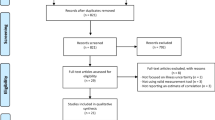Abstract
Purpose
Previous research has demonstrated the common experience of illness-related uncertainty; however, little research has explored the specific sources of uncertainty throughout cancer survivorship. The purpose of this study is to investigate the experience of uncertainty for cancer survivors and their partners. Thus, the following research question is posed: What are the sources of uncertainty in cancer survivorship for survivors and partners?
Method
One-on-one interviews were conducted with 35 cancer survivors and 25 partners. Constant comparative methodologies were used to analyze the data.
Results
Participants described medical, personal, and social sources of uncertainty that persisted throughout survivorship. Medical sources of uncertainty included questions about the cancer diagnosis, treatment and prognosis. Personal sources of uncertainty included ambiguous valued identities and career-related questions. Social sources of uncertainty included unclear communicative, relational and familial consequences of illness.
Conclusion
Survivors and partners in this study experienced uncertainty that persisted long after the completion of cancer treatment. The participants also described sources of uncertainty unique to this illness context. These results have important implications for health care providers and intervention developers and imply that chronic uncertainty should be managed throughout survivorship.
Implications for cancer survivors
The sources of uncertainty described in the current study have important implications for cancer survivors' management of uncertainty. Cancer survivors and their family members must first know the common sources of uncertainty to adaptively adjust to an uncertain survivorship trajectory. The present investigation provides insight into the uncertainty experiences of cancer survivors and implies that continued care may improve well-being after the completion of cancer treatment.
Similar content being viewed by others
References
Center for Disease Control: Cancer survivors—United States, 2007. http://www.cdc.gov/cancer/survivorship/what_cdc_is_doing/research/survivors_article.htm (2011). Accessed 30 April 2012.
American Cancer Society: Number of US cancer survivors growing. http://www.cancer.org/Cancer/news/News/numberofuscancersurvivorsgrowing (2012). Accessed 30 April 2012.
National Cancer Institute: US cancer survivors grows to nearly 12 million. http://www.cancer.gov/newscenter/pressreleases/2011/survivorshipMMWR2011 (2011). Accessed 30 April 2012.
Belluck P. New York Times: 20 % rise seen in number of cancer survivors. http://www.nytimes.com/2011/03/11/health/11cancer.html?_r=1 (2011). Accessed 30 April 2012.
Manne S, Badr H. Intimacy and relationship processes in couples’ psychosocial adaptation to cancer. Cancer Suppl. 2008;112:2541–55.
Acitelli LK, Badr HJ. My illness or our illness? attending to the relationship when one partner is ill. In: Revenson TA, Kayser K, Bodenmann G, editors. Couples coping with stress: emerging perspectives on dyadic coping. Washington: American Psychological Association; 2005. p. 121–56.
Oberst MT, James RH. Going home: patient and spouse following cancer surgery. Topics Clin Nurs. 1985;7:46–57.
Carter BJ. Long-term survivors of breast cancer: a qualitative descriptive study. Cancer Nurs. 1993;16:354–61.
Moyer A, Salovey P. Predictors of social support and psychological distress in women with breast cancer. J Health Psych. 1999;4:177–91.
Dow KH. The enduring seasons in survival. Oncol Nurs Forum. 1990;17:511–6.
Nelson JP. Struggling to gain meaning: living with the uncertainty of breast cancer. Adv Nurs Sci. 1996;18:59–76.
Gilbar O, Ben-Zur H. Cancer and the family caregiver: distress and coping. Springfield: Thomas; 2002.
Hagedoorn M, Sanderman R, Bolks HN, Tuinstra J, Coyne JC. Distress in couples coping with cancer: a meta-analysis and critical review of role and gender effects. Psych Bull. 2008;134:1–30.
Brashers DE, Neidig JL, Russell JA, Cardillo LW, Haas SM, Dobbs LK, et al. The medical, personal, and social causes of uncertainty in HIV illness. Issues Ment Health Nurs. 2003;24:497–522.
Goldsmith DJ, Lindholm KA, Bute JJ. Dilemmas of talking about lifestyle changes among couples coping with a cardiac event. Soc Sci Med. 2006;63:2079–90.
Stone AM, Jones CL. Sources of uncertainty: experiences of Alzheimer’s disease. Issues Ment Health Nurs. 2009;30:677–86.
Mishel MH. Uncertainty in illness. Image J Nurs Sch. 1988;20:225–32.
Mishel MH. Uncertainty in chronic illness. Annu Rev Nurs Res. 1999;17:269–94.
Mishel MH. Reconceptualization of the uncertainty in illness theory. Image J Nurs Sch. 1990;22:256–62.
Brashers DE. Communication and uncertainty management. J Commun. 2001;51:477–98.
Main DS, Nowels CT, Cavender TA, Etschmaier M, Steiner F. A qualitative study of work and work return in cancer survivors. Psycho-Oncol. 2005;14:992–1004.
Leininger M. Evaluation criteria and critique of qualitative research studies. In: Morse JM, editor. critical issues in qualitative research methods. Thousand Oaks: Sage; 1994. p. 95–115.
Lincoln YS, Guba EG. Naturalistic inquiry. Newbury Park: Sage; 1985.
Charmaz K. The grounded theory method: an explication and interpretation. In: Emerson R, editor. Contemporary field research. Prospect Heights, IL: Waveland; 1983. p. 109–26.
Strauss A, Corbin J. Basics of qualitative research: grounded theory procedures and techniques. Newbury Park: Sage; 1990.
Dow KH. The growing phenomenon of cancer survivorship. J Prof Nurs. 1991;7:54–61.
Mullan F. Seasons of survival: Reflections of a physician with cancer. N Engl J Med. 1985;313:270–3.
Thewes B, Butow P, Girgis A, Pendlebury S. The psychosocial needs of breast cancer survivors: a qualitative study of the shared and unique needs of younger versus older survivors. Psycho-Oncol. 2004;13:177–89.
Gray RE, Fitch M, Greenberg M, Hampson A, Doherty M, Labrecque M. The information needs of well, longer-term survivors of breast cancer. Pat Edu Counsel. 1998;33:245–55.
Mishel MH, Germino BB, Gil KM, Belyea M, Carlton Laney I, Stewart J, et al. Benefits from an uncertainty management intervention for African-American and Caucasian older long-term breast cancer survivors. Psycho-Oncol. 2005;14:962–78.
Brashers DE, Neidig JL, Cardillo LW, Dobbs LK, Russell JA, Haas SM. ‘In an important way, I did die:’ uncertainty and revival in persons living with HIV or AIDS. AIDS Care. 1999;11:201–19.
Hodgkinson K, Butow P, Hunt GE, Wyse R, Hobbs KM, Wain G. Life after cancer: couples’ and partners’ psychological adjustment and supportive care needs. Supp Care Cancer. 2007;15:405–15.
Author information
Authors and Affiliations
Corresponding author
Rights and permissions
About this article
Cite this article
Miller, L.E. Sources of uncertainty in cancer survivorship. J Cancer Surviv 6, 431–440 (2012). https://doi.org/10.1007/s11764-012-0229-7
Received:
Accepted:
Published:
Issue Date:
DOI: https://doi.org/10.1007/s11764-012-0229-7




